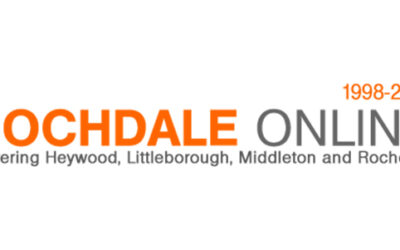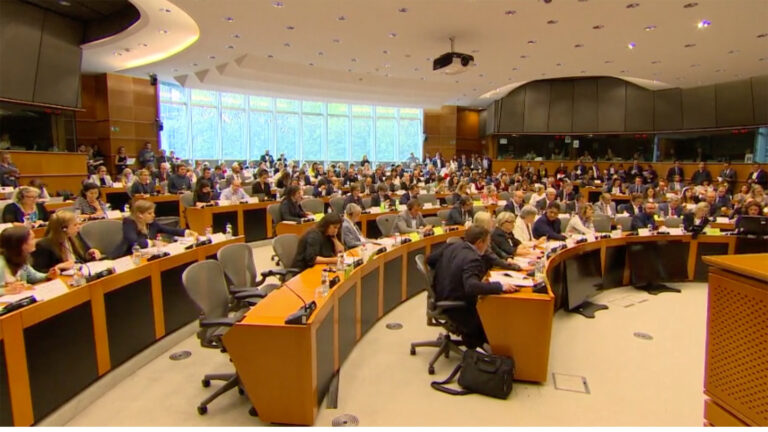The legislation itself has taken 3 years to get to this stage and is seen as a challenge by the music industry to YouTube, which would force the internet giant to pay billions of dollars in fees to artists.
However, McCapra believes that today’s vote in the European parliament would have more far-reaching effects.
“Far from delivering the hope that rights holders will receive compensation for use of their work, in practice, this means that people using these platforms for social sharing would be blocked from posting creative content, right down to ‘memes’ and ‘gifs’,” he wrote.
“It is also worth noting that whilst the music industry is supportive of the proposals, there is a host of voices against the Directive such as the Wikimedia Foundation and a group of the Internet’s original architects and pioneers, including Tim Berners-Lee.”
MEPs are set to vote later today on the Copyright Directive, with the most debated elements, Article 11 and Article 13.
Article 11 is about “fair remuneration for publishers” and to prevent content-sharing platforms and news aggregators from sharing links without paying for them.
Article 13 will place more burden on websites to enforce copyright laws.
The full letter from the CIPR
Dear Mr Watson,
RE: Directive for Copyright in the Digital Single Market
As Chief Executive of the Chartered Institute of Public Relations (CIPR) I am writing to you with concerns I have on the proposed Directive for Copyright in the Digital Single Market. I note your tweet in support of Michael Dugher’s letter and, whilst recognising the need to support creators, would like to raise the prospect that Article 13 of the legislation as proposed will not support the interests of rights holders.
Considering your excellent work supporting the Open Rights Group, and in your position as a member of their Advisory Council, it is disappointing that your stance on this matter appears to contradict much of the spirit of everything they stand for. I’m sure you are aware that they too have raised concerns and been critical of Article 13.
The social web has been a driver of significant change in the technical practice of public relations for nearly two decades. The platforms that billions of people engage with every day, the Information Society Service Providers (ISSPs) unlock access to a huge array of publics willing and able to communicate and collaborate with brands and businesses. This communication for the most part creates a dialogue that drives positive change in society.
As you know, Article 13 will force ISSPs to enter into license agreements with rights holders and to prevent users from sharing any content which is covered by copyright. Far from delivering the hope that rights holders will receive compensation for use of their work, in practice, this means that people using these platforms for social sharing would be blocked from posting creative content, right down to ‘memes’ and ‘gifs’.
The costs related to the license agreements and the technology to filter user generated content will hit all ISSPs, large or small. This will disproportionately impact the start-up platforms seeking to innovate or break into the sharing economy. The ‘balance of power’ you highlighted will be reinforced.
Article 13 – and Article 11 which would impose a link tax on ISSPs (further reinforcing the disadvantage to start-ups) will hit the freedoms of the internet and specifically the sharing economy. They contradict other EU directives and the Charter of Fundamental rights, would have a widespread impact on current popular use of the internet and would have a significantly negative effect on internet-based businesses, without solving the issues around copyright online.
It is also worth noting that whilst the music industry is supportive of the proposals, there is a host of voices against the Directive such as the Wikimedia Foundation and a group of the Internet’s original architects and pioneers, including Tim Berners-Lee.
No one disputes that users of copyrighted content have an obligation to the rights-holders, the manner in which rights-holders are prioritised in the regulation of the digital economy should be held in proportion to the benefits they will derive if any sharing of their content is stifled. Whilst not advancing alternative proposals, it is our view that further consideration is required; if Parliament does not accept the current proposals there will be a further vote on the substance of the text in plenary in September. This means new changes to the text will be proposed and voted on. Should the mandate be accepted, the European Parliament and Council will begin working on the final text leading to a final accept/reject vote in plenary in late 2018 / early 2019. Rejecting the mandate now, therefore enabling further discussion before a vote on the text in September, will provide the opportunity to clear up some of the above mentioned issues.
Kind regards,
Alastair McCapra
CEO, Chartered Institute of Public Relations










